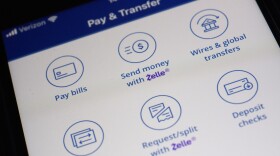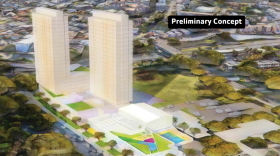-
Fraud prevention expert Doug Shadel shares tips on how to detect AI and cryptocurrency scams and avoid becoming a victim of fraud.
-
AARP Hawaiʻi Director Kealiʻi Lopez talks about concerns regarding wait times and services at local Social Security offices.
-
Hoʻokele Home Care CEO Tanya Fernandes spoke with HPR’s Lillian Tsang about common challenges family members face when using long-term care insurance.
-
Thursday marked 90 years since the nation's Social Security program was signed into law. Kealiʻi Lopez, director of AARP Hawaii, stopped by The Conversation to discuss what many consider a lifeline for so many kūpuna.
-
The YMCA of Honolulu will receive a $5 million donation from the Clarence T.C. Ching Foundation for its Nuʻuanu location. The money will go towards improving and modernizing the flagship location.
-
Retirement Living ranked Hawaiʻi last out of the 50 states for places to retire based on affordability, quality of life, and economic strength.
-
The state Legislature set aside $1 million for the program in 2023, and not all of it had been spent. If the Legislature had not extended the program’s length, the funds would have lapsed.
-
The Conversation’s Lillian Tsang sat down with Norma Kop to get details on what you can do to protect yourself from the latest health care scams.
-
Seabury Hall pianist Cassie Goldyn and her sister Bobby started a nonprofit: a tuition-free choir on Maui that performs for kūpuna, brightening their day with the sharing of music. Inspired by visits with her grandmother, Cassie — who has been playing the piano since age 4 — has found a way to turn her hard work and joy into others' happiness.
-
Today, The Conversation hosts a call-in show with guests from AARP to discuss Social Security concerns. Call in live, or leave a voicemail at 808-792-8217. You can also email The Conversation at talkback@hawaiipublicradio.org.
Play Live Radio
Next Up:
0:00
0:00
Available On Air Stations










